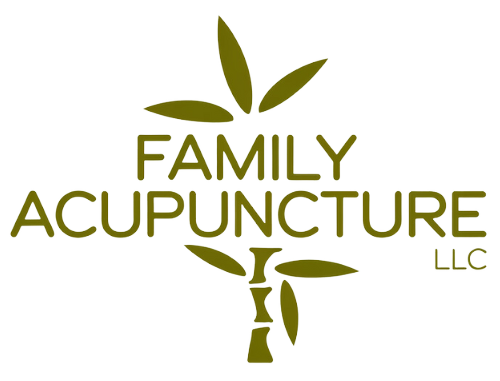ACUPUNCTURE Q & A
Frequently Asked Questions
Below are answers to some of the most common questions about acupuncture. If you have any other questions or are interested in improving your life through acupuncture, feel free to call us
-
What is Acupuncture?
Acupuncture is an effective form of health care that has evolved into a comprehensive and holistic medical system. Practitioners of acupuncture and Chinese medicine have used this non-invasive approach to diagnose and help millions of people regain health and maintain well-being.
An acupuncturist places fine, sterile needles at specific acupoints on the body. This activates the body’s Qi and promotes natural healing by enhancing recuperative power, immunity, and both physical and emotional health. It can also improve overall function and well-being. Acupuncture is a safe, painless, and effective treatment for a wide variety of medical issues.
-
What Will My Acupuncturist Do?
During the initial exam, a complete health history will be taken. Questions will cover symptoms, health, and lifestyle. Your acupuncturist may also check your pulses, examine your tongue, and perform a physical exam. This information is then used to create a complete and accurate diagnosis of where Qi has become blocked or imbalanced. After the interview, you may receive an acupuncture treatment. Visits typically last between thirty to ninety minutes.
-
Why Do They Want to Feel My Pulse?
There are twelve pulse positions on each wrist that your acupuncturist will palpate. Each position corresponds to a specific meridian and organ. Your acupuncturist will be looking for twenty-seven qualities that reflect your overall health. Any imbalances or health issues may show up in the pulse.
-
Why Do They Want to Look at My Tongue?
The tongue serves as a map of the body, reflecting the general health of the organs and meridians. Your acupuncturist will assess the color, shape, cracks, and coating on your tongue to gain insight into your health.
-
Why Did My Acupuncturist Recommend Herbs?
Herbs can be a powerful complement to acupuncture treatment. They are used to strengthen, build, and support the body, or to clear excess issues such as a cold, fever, or acute pain. Your acupuncturist may suggest starting with herbs before incorporating acupuncture, to help build internal strength and enhance the full benefits of acupuncture.
-
Is Acupuncture Safe for Children?
Yes. In many cases, children respond more quickly than adults. If your child is uncomfortable with needles, your acupuncturist may use acupressure (massage of the acupuncture points) or tuina (a type of therapeutic massage).
-
How Many Treatments Will I Need?
The number of treatments varies from person to person. Some individuals experience immediate relief, while others may take longer, especially if the condition is chronic. Typically, chronic conditions require more time to resolve than acute ones. It is recommended to plan for at least a month to see significant improvement.
Treatment frequency depends on various factors, including your overall health, the severity and duration of the problem, and the quality and quantity of your Qi. An acupuncturist may suggest one or two treatments per week or monthly visits for health maintenance and seasonal "tune-ups."
-
How Much Does It Cost?
The cost of acupuncture varies depending on the procedures performed. It’s best to consult directly with your acupuncturist for specific pricing information.
-
Will My Insurance Cover Acupuncture?
Insurance coverage for acupuncture can vary depending on your location. Contact your insurance provider to confirm what services are covered. Below are some questions you can ask your provider:
- Does my plan cover acupuncture?
- How many visits per year are covered?
- Do I need a referral for acupuncture treatment?
- What is my co-pay or deductible, and has it been met?
-
How Should I Prepare for My Appointment?
- Write down and bring any questions you may have; your acupuncturist is here to help.
- Wear loose, comfortable clothing to allow easy access to acupuncture points.
- Avoid eating large meals before or after your visit.
- Refrain from strenuous exercise, drugs, or alcohol for up to six hours after the visit.
- Try to avoid stressful situations, and make time to relax. Ensure you get plenty of rest.
- Between visits, keep track of any changes, such as pain relief or changes in symptoms.
-
How Safe is Acupuncture?
Acupuncture is extremely safe. It is a natural, drug-free therapy that typically produces feelings of relaxation and well-being, with little risk of side effects. Since acupuncture needles are sterile, used once, and then discarded, there is minimal risk of infection.
-
How Are Acupuncturists Educated?
Acupuncturists undergo extensive training, typically ranging from three to four years of graduate education at nationally accredited schools. To practice, acupuncturists must pass a national certification exam and meet strict state guidelines.
-
What Can Acupuncturists Treat?
Acupuncture is recognized by the National Institutes of Health (NIH) and the World Health Organization (WHO) for treating a wide variety of medical conditions. Below are some common health concerns that acupuncture can help address:
- Addiction
- Anxiety
- Arthritis
- Asthma
- Bronchitis
- Carpal Tunnel Syndrome
- Chronic Fatigue
- Colitis
- Common Cold
- Digestive Issues
- Depression
- Headaches
- Infertility
- Migraines
- Menstrual Irregularities
- Pain (Back, Neck, Shoulder, etc.)
- Sciatica
- Stress
- Smoking Cessation
- And much more...
send us a message
Need more information? Our most common questions are answered below.
We will get back to you as soon as possible
Please try again later

